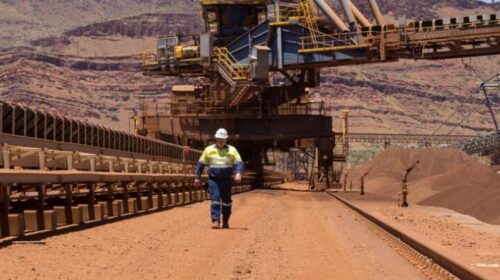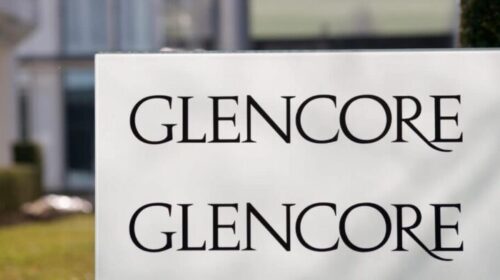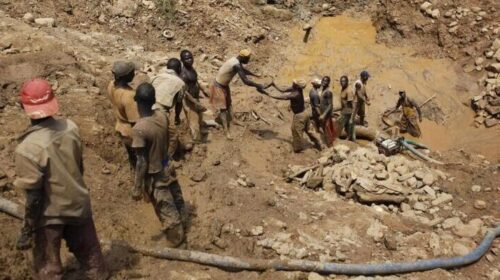Advancements in Angola’s Mineral Resources, Oil, and Gas Sector
The mineral resources, oil, and gas sector in Angola have witnessed significant progress between 2017 and 2022, marked by the allocation of mining rights for various valuable resources.
Diamonds, gold, iron, copper, manganese, niobium, rare earth elements, ferrous metals, non-ferrous metals, base metals, limestone, silica sand, gypsum, ornamental rocks, basalt, phosphate, industrial minerals such as fluorite and beryllium, minerals containing lithium and cobalt, as well as mineral-medicinal waters, have all seen advancements in exploration and exploitation.
This announcement was made by Minister Diamantino Pedro Azevedo during the opening of the Consultative Council of the Ministry of Mineral Resources, Oil, and Gas, held in Uíge.
Minister Azevedo emphasized that these developments signify a commitment to diversify the mining sector, which was predominantly focused on diamonds in the past.
The minister highlighted several ongoing projects that exemplify this diversification effort. Prospecting projects for rare earths in Longonjo, Huambo province, niobium in Kilengues, Huíla province, copper in Ntetelo-Mavoio, Uíge province, lithium ore in Namibe province, and copper, cobalt, and nickel minerals in Cunene and Moxico provinces were cited as noteworthy examples.
In terms of exploration, Minister Azevedo mentioned the Chipindo and Chicuamone gold projects in Huíla province, as well as the recently inaugurated BucoZau project in Cabinda province. Additionally, manganese exploration projects in Kitota, Malanje province, and iron ore exploration and pig iron production in Kutato-Cuchi, Cuando Cubango province, were acknowledged as significant advancements.
The minister also highlighted the involvement of important international players in various mining projects within Angola. Companies like Anglo-American, Rio Tinto, De Beers, Pensana Metals, and Minbos are actively engaged in prospecting for copper, diamonds, base metals, rare earth elements, and phosphates across different provinces.
Minister Azevedo underscored the importance of the National Geology Plan (Planageo) in enhancing geoscientific knowledge and understanding the geological-mining potential of the country. The subprograms in the North and South zones have been concluded, with the East zone remaining.
The minister further emphasized Angola’s commitment to good governance by becoming a member of the International Committee of the Organization for the Initiative for Transparency in Extractive Industries (EITI). This membership reinforces the country’s dedication to transparently managing mineral resources for the benefit of its people.
Contrary to the perception that mineral resources can bring curses, Minister Azevedo highlighted the efforts of the Ministry of Mineral Resources, Oil, and Gas, along with public and private entities, in supporting communities residing in areas with extractive activities. These initiatives align with their social responsibilities and were discussed in detail during the advisory council.
To promote technical and professional training within the sector, a regulatory instrument has been introduced to redefine the principles for specialized higher education in mineral resources.
Scholarships have been awarded for various areas, particularly engineering and earth sciences. The sector has also established agreements with international institutions, sending students to France and Germany for specialized higher education.
Several institutions, including the National Petroleum Institute (INP), the Higher Polytechnic Institute of Technologies and Sciences (ISPTEC), the Maritime Training Center of Angola (CFMA) of Sonangol, and professional training centers in Saurimo’s diamond development hub, have significantly contributed to the training and technical-scientific advancement of Angolan professionals in the oil, mining, and gas.
Minister Azevedo acknowledged that the current legislature presents significant challenges, considering the commitments undertaken by the government in the mineral resources, oil, and gas sector. The objectives include replenishing reserves, developing the gas master plan, ensuring self-sufficiency in refined products, and aligning the sector with environmental sustainability goals.
The minister outlined priorities for the five-year period 2023-2027, which include the development of oil fields, exploration activities, and promoting the petrochemical industry. Furthermore, efforts to reduce greenhouse gas emissions and achieve carbon neutrality align with the global decarbonization program and Angola’s commitments.
In conclusion, Angola’s mineral resources, oil, and gas sector have experienced substantial advancements, fostering diversification and sustainable growth. The country’s commitment to good governance, support for local communities, investment attraction, and environmental sustainability underscores its determination to effectively manage and benefit from its valuable resources.
![]()





